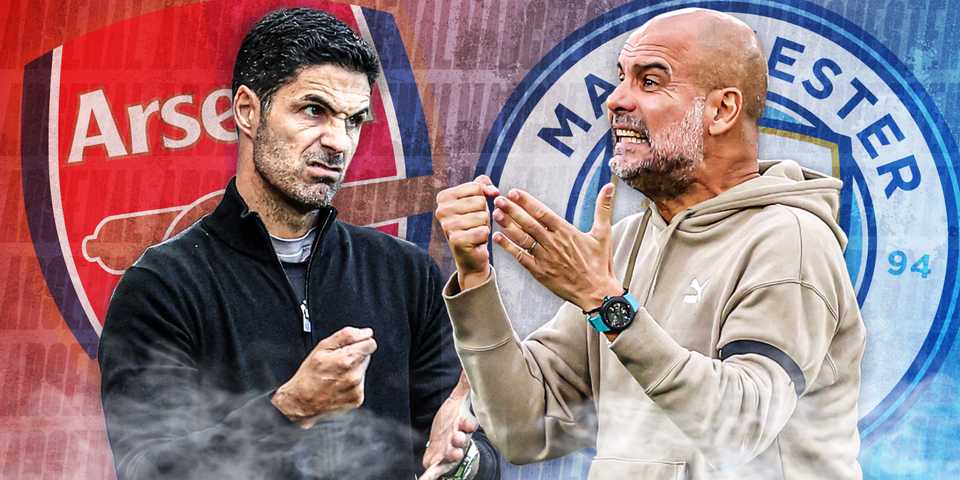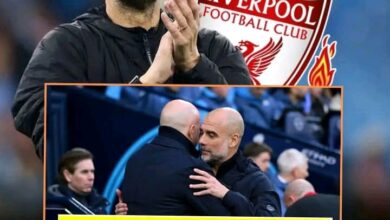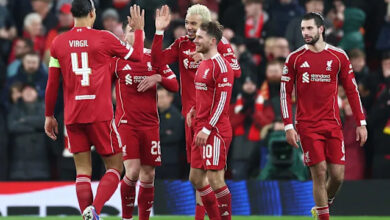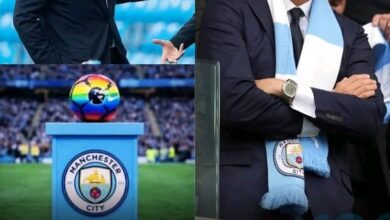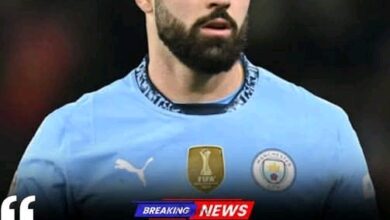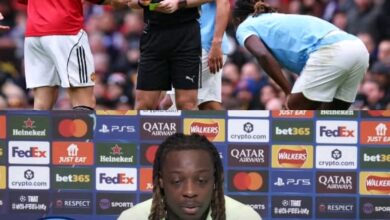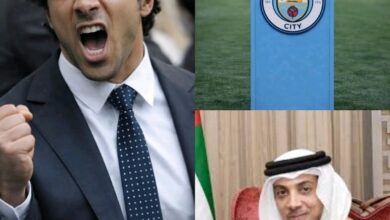Arsenal’s Golden Investment: How Ethan Nwaneri Represents the Future Beyond Big-Money Signings
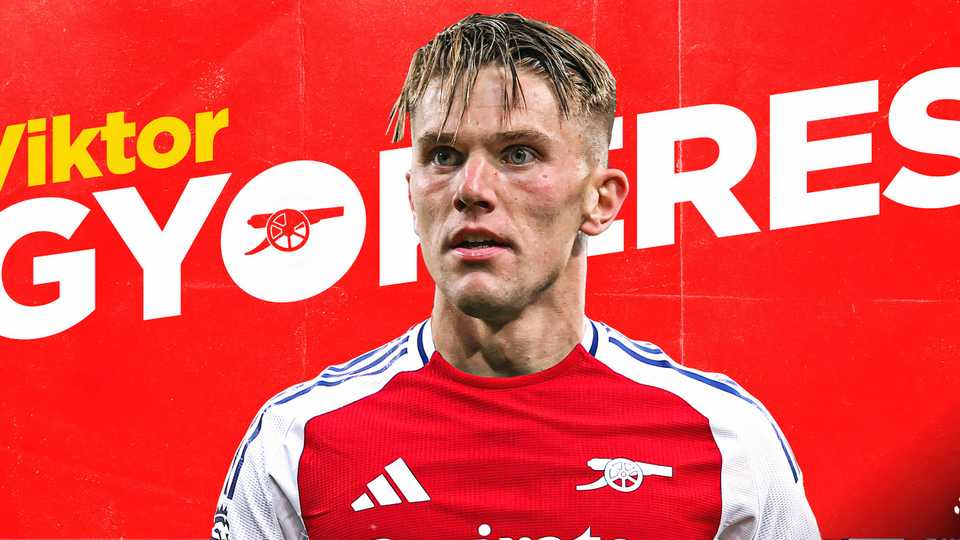
As the Premier League landscape continues to evolve at breakneck speed, Arsenal Football Club finds itself at a critical juncture that could define the next decade of the club’s trajectory. Under the meticulous guidance of Mikel Arteta, the North London giants have undergone one of the most remarkable transformations in recent Premier League history, evolving from a mid-table outfit struggling to find their identity into genuine title contenders who have consistently challenged Manchester City’s dominance.
However, despite three consecutive seasons of impressive progress, Arsenal remains tantalizingly close yet frustratingly far from their ultimate goal: reclaiming the Premier League crown that has eluded them since the invincible season of 2003-04. The weight of expectation now rests heavily on Arteta’s shoulders, with many observers suggesting that the upcoming season represents a make-or-break moment for both the Spanish tactician and the club’s championship aspirations.
The pressure is palpable, and the stakes have never been higher. Arsenal’s faithful supporters, who have endured years of mediocrity and false dawns, are beginning to show signs of impatience with moral victories and “almosts.” They demand tangible success, and anything short of a Premier League title this season could be viewed as a failure, regardless of the undeniable progress made under Arteta’s stewardship
Recognizing the gravity of the situation, Arsenal’s hierarchy, led by sporting director Andrea Berta and backed by ambitious ownership, have demonstrated their commitment to success through decisive action in the transfer market. The summer transfer window has seen the Gunners make strategic moves designed to address the specific weaknesses that prevented them from crossing the finish line in previous campaigns.
The crown jewel of Arsenal’s summer business has undoubtedly been the acquisition of Viktor Gyokeres, the Swedish striking sensation who has taken European football by storm. The £63.5 million investment in the former Sporting CP forward represents a significant statement of intent from the club, demonstrating their willingness to compete with Europe’s elite in the transfer market and their recognition that elite-level success requires elite-level investment.
This substantial outlay places Gyokeres among Arsenal’s most expensive signings in the club’s history, ranking as their fifth-highest transfer fee ever paid. The significance of this investment cannot be understated, particularly for a club that has historically been more conservative in their transfer dealings compared to their Premier League rivals. It signals a new era of ambition and financial commitment from the ownership group.
The decision to pursue Gyokeres wasn’t made lightly. Arsenal’s analytical department, renowned for their data-driven approach to recruitment, identified specific areas where the team needed improvement. Despite their defensive solidity and tactical sophistication under Arteta, the Gunners’ attacking output had become a limiting factor in their title aspirations.
Viktor Gyokeres’ arrival at Arsenal represents more than just the acquisition of a talented striker; it embodies the club’s evolution in their approach to talent identification and recruitment. The Swedish international’s journey to North London has been nothing short of remarkable, transitioning from the English Championship with Coventry City to becoming one of Europe’s most feared goalscorers during his time in Portugal.
The statistics that Gyokeres produced during his tenure at Sporting CP are genuinely staggering and provide compelling evidence for Arsenal’s substantial investment. In 52 appearances across all competitions during his final season in Lisbon, the striker demonstrated an almost supernatural ability to find the back of the net, scoring 54 goals while contributing an additional 13 assists. These numbers translate to an extraordinary average of 1.28 goal involvements per game, or one decisive contribution every 63.40 minutes of playing time.
Such consistency and productivity at the highest level of European competition immediately caught the attention of Arsenal’s recruitment team. The club had identified their attacking deficiencies as a primary obstacle to championship success, having scored 17 fewer goals than eventual champions Liverpool during the previous Premier League season. Despite their defensive organization and tactical discipline, Arsenal ranked only as the third-highest scoring team in the league, a statistic that highlighted the need for a clinical finisher.
Gyokeres’ profile perfectly matched Arsenal’s requirements. Analyst Ben Mattinson described him as a goalscoring “powerhouse,” highlighting not just his ability to score goals but his physical presence, work rate, and tactical intelligence that would complement Arteta’s system perfectly. The Swedish striker’s versatility in terms of playing style made him an ideal fit for Arsenal’s fluid attacking approach, capable of operating as a traditional number nine while also contributing to buildup play and pressing from the front.
His international record with Sweden further reinforced his credentials as a world-class talent. In 26 appearances for his national team, Gyokeres has contributed 15 goals and six assists, maintaining his impressive rate of a goal involvement every 1.23 games or every 74.66 minutes. This consistency across different tactical systems and levels of competition demonstrated the striker’s adaptability and mental strength, qualities highly valued by Arteta and his coaching staff.
While Arsenal’s marquee signing rightfully commanded headlines and excited supporters with dreams of championship glory, an even more remarkable story was unfolding within the club’s own academy system. Ethan Nwaneri, an 18-year-old attacking midfielder from Enfield, has emerged as one of the most exciting prospects in world football, with his rapid development serving as validation of Arsenal’s renowned youth development program.
Nwaneri’s journey into first-team football began with a historic moment that captured the imagination of football fans worldwide. In 2023, at just 15 years of age, he became the youngest player ever to appear in a Premier League match when Arteta introduced him as a substitute. While this appearance was largely symbolic, it demonstrated the manager’s faith in the academy system and his willingness to give opportunities to exceptional young talents regardless of their age.
However, it was during the 2024-25 season that Nwaneri truly announced himself as a genuine first-team prospect rather than simply a promising youth player. What began as occasional substitute appearances evolved into meaningful contributions, with the teenager demonstrating maturity and technical ability that belied his years. His performances were so impressive that they prompted Football Transfers to assign him a market valuation of €74 million (approximately £64.5 million), making him theoretically worth more than the club’s record signing Gyokeres.
This valuation might seem excessive for a player with limited first-team experience, but it reflects the modern football market’s appetite for young talents with exceptional potential. Clubs have increasingly recognized that identifying and securing top-tier prospects early in their development can provide both sporting success and significant financial returns. In Nwaneri’s case, his combination of technical ability, physical attributes, and mental maturity suggests a player capable of reaching the very highest levels of the game.
The 2024-25 campaign represented a coming-of-age moment for Nwaneri, who transitioned from academy graduate to genuine first-team contributor with remarkable ease. Despite starting the season as a 17-year-old, he managed to accumulate 37 appearances across all competitions, totaling 1,378 minutes of playing time. Within this relatively modest amount of game time, Nwaneri produced nine goals and two assists, statistics that become even more impressive when contextualized.
His average of one goal involvement every 125.27 minutes represents exceptional productivity for any player, let alone a teenager experiencing his first full season of senior football. When compared to established Premier League attackers, these numbers place Nwaneri among the most efficient players in the league in terms of minutes per goal contribution. The fact that he achieved this while playing in both the Premier League and Champions League, arguably the two most competitive tournaments in world football, makes his achievement even more remarkable.
Former professional Stephen Warnock described Nwaneri as “phenomenal,” a assessment that reflected the broader football community’s recognition of his exceptional talent. What impressed observers most was not just his statistical output but the manner in which he adapted to senior football’s physical and mental demands. Unlike many young players who struggle with the transition from youth football to the professional game, Nwaneri appeared comfortable and confident from his earliest appearances.
His performances in high-pressure situations, including Champions League matches against some of Europe’s most experienced defenders, demonstrated a mental strength and composure that typically takes years to develop. Arsenal’s coaching staff noted his ability to make correct decisions under pressure, his willingness to take responsibility in crucial moments, and his capacity to influence games despite his limited experience.
Beyond raw goal and assist numbers, Nwaneri’s underlying statistics reveal a player whose technical ability and tactical understanding operate at an elite level. According to FBref’s comprehensive analytical database, his performance metrics compare favorably with established stars across Europe’s top five leagues, a remarkable achievement for someone only recently graduated from academy football.
In terms of successful take-ons, Nwaneri ranks in the top 1% of attacking midfielders and wingers across Europe’s premier competitions. This statistic reflects not only his dribbling ability but his confidence in one-on-one situations and his willingness to take on defenders in dangerous areas. Such skills are increasingly valuable in modern football, where the ability to create space and opportunities in congested penalty areas often determines the outcome of tightly contested matches.
His crossing ability represents another standout attribute, with Nwaneri ranking in the top 4% for crosses into the penalty area per 90 minutes. This metric is particularly significant given Arsenal’s style of play, which relies heavily on wide players creating opportunities for central attackers. Arteta’s tactical system demands versatile attackers capable of contributing from multiple positions, and Nwaneri’s crossing ability provides an additional dimension to Arsenal’s attacking play.
Perhaps most impressively, Nwaneri ranks in the top 7% for total carrying distance, a statistic that measures a player’s ability to advance the ball through dribbling and progressive runs. This metric reflects his impact on Arsenal’s transition from defense to attack, highlighting his role in breaking through opposition defensive lines and creating attacking opportunities from deeper positions.
These statistics become even more significant when considered in the context of Nwaneri’s age and experience level. While established stars might be expected to excel in these areas, for an 18-year-old to demonstrate such technical proficiency against seasoned professionals represents exceptional talent and suggests enormous potential for future development.
Nwaneri’s emergence as a first-team regular represents the culmination of Arsenal’s long-standing commitment to youth development and their strategic vision for sustainable success. The club’s academy, based at the state-of-the-art London Colney training facility, has long been regarded as one of Europe’s finest youth development programs, producing talents like Jack Wilshere, Serge Gnabry, and more recently, Bukayo Saka and Emile Smith Rowe.
The integration of academy graduates into the first team serves multiple strategic purposes for Arsenal. From a financial perspective, developing homegrown talents provides significant value, as academy graduates represent pure profit in terms of transfer fees while eliminating the substantial costs associated with purchasing established players. This model allows clubs to reinvest savings into other areas, whether that’s acquiring complementary talents or improving infrastructure.
From a sporting standpoint, academy graduates often demonstrate exceptional commitment and understanding of the club’s culture and playing style. Having progressed through Arsenal’s system from childhood, players like Nwaneri possess an intuitive understanding of the club’s tactical approach and expectations. This familiarity can accelerate their integration into senior football and reduce the adaptation period typically required for new signings.
Arteta has consistently emphasized the importance of maintaining strong connections between the academy and first team, implementing training sessions that bring together players from different age groups and ensuring that academy prospects understand the standards required for senior football. This approach has created a pathway for exceptional talents like Nwaneri while maintaining the competitive standards necessary for Premier League success.
The modern football transfer market has undergone significant evolution in recent years, with clubs increasingly recognizing the value of identifying and securing young talents before they reach their peak market value. Nwaneri’s current valuation of £64.5 million reflects this trend, with evaluators considering not just his current ability but his potential for future development and the financial benefits of securing such talents early in their careers.
From Arsenal’s perspective, Nwaneri represents the ideal combination of sporting and financial opportunity. Having invested in his development through the academy system, the club now possesses an asset whose value could increase exponentially based on his continued progression. Should Nwaneri fulfill his apparent potential and develop into a world-class player, Arsenal would benefit from both his on-field contributions and the substantial transfer value he would command in the market.
This dynamic creates interesting strategic decisions for Arsenal’s hierarchy. While the temptation might exist to capitalize on Nwaneri’s current market value through a substantial transfer fee, the club’s long-term interests are likely better served by retaining his services and building their future around his development. The potential financial returns from keeping a generational talent could far exceed any immediate transfer fee, particularly if his presence contributes to championship success and the associated commercial benefits.
The comparison with Gyokeres becomes particularly relevant in this context. While the Swedish striker represents an immediate investment designed to deliver short-term success, Nwaneri embodies the club’s long-term vision and potential for sustained excellence. The fact that an academy graduate is valued higher than a proven international striker highlights the modern market’s emphasis on potential and the premium placed on young English talents.
Arteta’s tactical system places significant demands on attacking players, requiring versatility, work rate, and tactical intelligence alongside traditional technical skills. Nwaneri’s successful integration into this system demonstrates his adaptability and suggests bright prospects for his continued development. The manager’s confidence in deploying him in crucial matches, including Champions League fixtures, reflects his assessment of the player’s readiness for elite-level competition.
The teenager’s ability to operate in multiple attacking positions provides Arteta with valuable tactical flexibility. Whether deployed as an attacking midfielder, wide forward, or even false nine, Nwaneri has demonstrated the technical ability and tactical understanding necessary to contribute effectively. This versatility makes him particularly valuable in modern football, where tactical systems often require players to adapt their positioning based on game situations.
Looking ahead, Nwaneri’s development trajectory suggests he could become a cornerstone of Arsenal’s attacking play for years to come. His combination of pace, technical ability, and tactical intelligence aligns perfectly with the modern game’s requirements, while his youth suggests significant room for further improvement. If he continues developing at his current rate, he could emerge as one of the Premier League’s most influential players within the next few seasons.
Nwaneri’s emergence occurs within the broader context of Arsenal’s strategic evolution under Arteta and the current ownership group. The club has demonstrated a commitment to combining immediate competitiveness with long-term sustainability, evidenced by their willingness to invest heavily in proven talents like Gyokeres while continuing to develop exceptional prospects through their academy system.
This dual approach reflects lessons learned from previous eras when Arsenal relied too heavily on either expensive acquisitions or young prospects without achieving the optimal balance. The current strategy acknowledges that championship success requires a combination of experience, youth, and tactical cohesion, with different players fulfilling different roles within the overall framework.
The success of this approach will ultimately be measured by Arsenal’s ability to achieve their primary objective: winning the Premier League title. However, Nwaneri’s emergence provides cause for optimism beyond immediate results, suggesting that the club’s future remains bright regardless of short-term outcomes. His development validates Arsenal’s investment in youth development and provides a template for sustainable success in an increasingly competitive landscape.
As Arsenal prepares for what many consider a defining season in the Arteta era, the emergence of Ethan Nwaneri provides a compelling subplot to the club’s championship aspirations. While Gyokeres represents the immediate firepower needed to compete with Manchester City and Liverpool, Nwaneri embodies the long-term vision that could sustain Arsenal’s success for years to come.
The teenager’s remarkable progression from academy prospect to first-team regular demonstrates the enduring value of youth development in modern football. His current valuation exceeding that of proven international striker Gyokeres reflects not just his exceptional talent but the market’s recognition of his enormous potential.
Whether Arsenal achieves their immediate goal of Premier League glory or continues their gradual progression under Arteta, Nwaneri’s presence ensures that the club’s future remains bright. In an era where financial sustainability and sporting success must be carefully balanced, the emergence of a generational talent from within their own ranks represents the perfect solution to modern football’s challenges.
For Arsenal supporters who have endured years of disappointment and false dawns, Nwaneri’s story provides genuine cause for excitement. While Gyokeres may deliver the goals needed for immediate success, Nwaneri represents something potentially even more valuable: the foundation for sustained excellence that could define Arsenal’s next golden era. In striking gold with their academy graduate, Arsenal may have discovered not just a exceptional player, but the key to their long-term resurgence as a premier force in world football.





